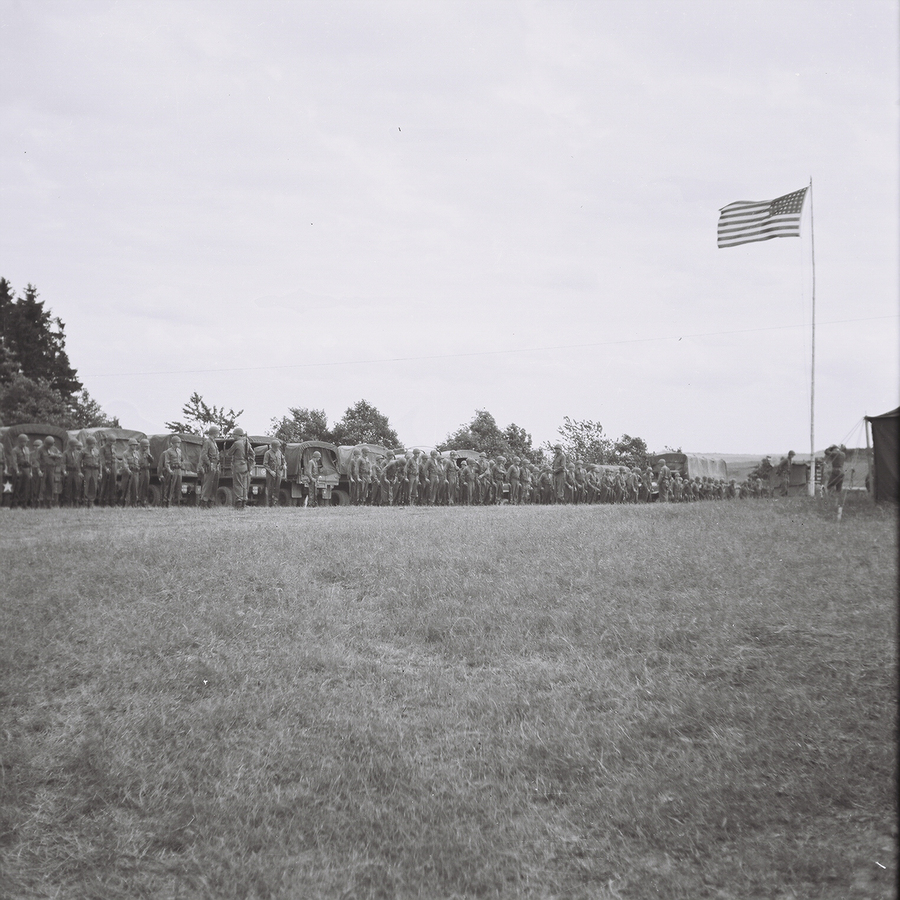The “Henry Gibbons”

Likely in England. From the collection of Irving Mayer.
NOTES ONLY ON CROSSING THE ATLANTIC—NO SENTENCES
Phase Two
At 00:30 hours, May 16, 1944, the disembarkation order came through and the men began shoving off the good ship “Henry Gibbons” on to the English docks in the midst of an air alert. This was their first engagement with the E. T. O. blackout. It did not aid the well laden Indian file of soldiers as they groped toward the train which was waiting at siding located about one hundred feet from the ship. British MPs served as guide posts along the short dark route. The dumping of duffle bags in a baggage car before boarding the coaches was welcomed by all. With only their full field packs, gas masks, pieces, belts, and helmets, the men quickly filed into the dark cars at 0100.
The seating in the darkened cars was aided by the use of flash lights. This process was accompanied by the usual pleasant generalities which are exchanged by combat soldiers moving deftly into one another in the dark. Word came along that Red Cross girls were passing out “donuts and” — in the cars and to “watch your language.”
Some one discovered that the air alert was over. The lights were turned on. This discovery proved in error; off went the lights until it was pointed out that the cars were adequately blacked out and there was light once more.
In the lighted cars the men quickly arranged their gear amid comments about the lack of space of the cramped English coaches. After the troops were uncomfortably seated in the most convenient manner, the conversation shifted to the noise of the sirens and then to the “First Class” signs over the doorways which served as partitions to divide the cars into three sections.
“Where are the Red Cross girls?” the hungry ones asked. It turned out that there were no girls but there were Red Cross dough nuts. The mistake was made of passing the dough nuts out buffet style. This resulted in a certain amount of hoarding by some individuals. This situation was quickly remedied by the omnipresent first sergeant. At 0145 the lights were turned out, the men settled down and the train with one hundred sixty seven enlisted men and five officers moved from the docks toward the English countryside Sergeant Duckworth and T/5 Maceda remained behind as a baggage detail.
Until 0745, the train load of men, with deception their mission but without deceit in their fighting hearts, clicked its way northeast. The one hundred twenty mile trip ended at Kineton, Warwickshire. Here, trucks were boarded which conveyed the company to Walton Hall Manor.